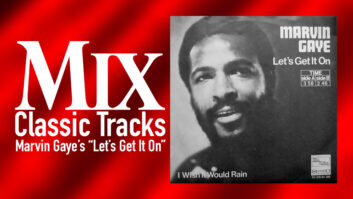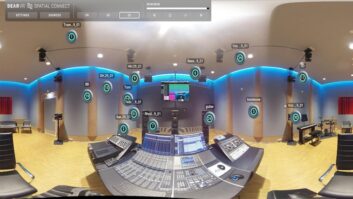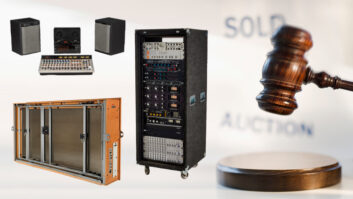
Although Steve Winwood was just shy of 19 when he formed the group
Traffic in the spring of 1967, he was already a veteran performer.
Having played with his brother Muff in jazz bands in his early teens,
the younger Winwood was fronting the pop/R&B-flavored Spencer Davis
Group by the age of 15. He was lead singer, guitarist, organist and
co-writer of the group’s two biggest hits, “Gimme Some
Lovin’” and “I’m a Man” — quite an auspicious
beginning for the Birmingham, England, native. After his sojourn with
the Spencer Davis Group, Winwood started Traffic with three friends
— guitarist Dave Mason, drummer Jim Capaldi and reeds player
Chris Wood — all of whom had appeared, uncredited, on an American
remix of the SDG’s “Gimme Some Lovin’” and then later on
“I’m a Man.”
The SDG sessions involving the future Traffic members were among the
first to be helmed in England at Olympic Studios by producer Jimmy
Miller, an American who would go on to be one of the most successful
producers in Britain during the late ’60s and early ’70s. (There was a
precedent for American producers doing well in England — Shel
Talmy had cut early hits with both The Kinks and The Who.) Those
proto-Traffic “I’m a Man” sessions were also the first
pairing of Miller and a young Olympic engineer who would also make
quite a mark in rock history, Eddie Kramer, who, as fate would have it,
had worked with Talmy at Pye Studios before going to Olympic.

Read more “Classic Tracks”
Buy the book
“Jimmy Miller was my mentor,” Kramer says from his
Hudson Valley home north of New York City. “Bob Auger [at Pye]
and Keith Grant from Olympic are the guys who taught me most of what I
know about engineering, but Jimmy was the guy I owe for my initial
forays into producing; he’s definitely the guy who influenced me the
most. He was a genius and a wonderful human being. He just had the most
amazing ability to take a group of musicians, rehearse them, get them
in the studio and get them so excited about what they were doing and
make it all seem so much fun that I realized that this is the
way that records should be produced. He was just a terrific catalyst.
He had a great sense of humor. And he was unstoppable in the sense that
his energy level was always up. He really, really dug the music;
he was always so into the band: ‘How can I get you guys to feel
this track the way I’m feeling it?’ He would sing parts.
He was like a master of ceremonies.”
Miller became such good friends with Winwood that he was the natural
choice to produce Traffic’s first album, which was cut at Olympic late
in the fall of ’67 and released around Christmas that year. But before
Traffic was ready to record, the group spent a few idyllic weeks in a
small cottage in rural Berkshire, spreading their wings creatively,
working on songs together and trying to establish a group identity.
Most of the first album’s material was born at pot- and
psychedelics-fueled jam sessions at the cottage, including this month’s
Classic Track, “Dear Mr. Fantasy.” In the mid-’80s, Capaldi
told me about the genesis of that song:
“It was the summer of 1967, and we were all living in this
cottage in Berkshire. We were one of the first English bands to live
together like that. We thought we’d try it and see if anything came of
it. I remember the day very clearly: A bunch of friends came over early
in the day and we had quite a party. It was sunny and the corn was
coming up nicely around the cottage, and we were quite enjoying
ourselves, if you know what I mean. As things finally wound down in the
evening, I was sitting around just doodling, as I would often do,
drawing this character. It was this little fellow with a spiked sun
hat. He was holding some puppeteer’s strings, and the puppet hands on
the end of the strings were playing a guitar. Under that I just
scribbled some words: ‘Dear Mr. Fantasy,’ play us a tune,
something to make us all happy’ and on a bit. It was nice, but I didn’t
think much of it; certainly, it wasn’t intended to be a song.
“I crashed out eventually, but I remember hearing Steve and
Chris playing around after. The next day, I woke up and found that
they’d written a song around the words and drawing I’d done. I was
completely knocked out by it. Chris wrote that great bass line. We
added some more words later and worked out a bigger arrangement, too.
Those were very happy days for Traffic.”
According to Capaldi, when the group later went to Olympic to cut
the song, “We tried originally to record it regularly, with all
of us in little booths and all, but we weren’t feeling anything.
So we got rid of the booths and we all played together in this big
room. We ended up cutting the song very live.”
Kramer: “We had the band set up on a riser at one end of the
studio, which is a big room — maybe 65, 70 feet long by about 45
wide with about a 30-foot ceiling. They were set up as if they were
onstage and I recorded them live, straight to 4-track. I can remember
with such clarity the time when we were actually cutting ‘Dear
Mr. Fantasy’: We were in the middle of a take and there’s a part
where the tempo changes — it jumps — and I look around and
Jimmy Miller’s not in the control room. The next thing I see out of the
corner of my eye is Jimmy hauling ass across the room, running full
tilt. He jumps up on the riser, picks up a pair of maracas and gets
them to double the tempo! That, to me, was the most remarkable piece of
production assistance I’d ever seen. They were shocked to see him out
there, exhorting them to double the tempo. Their eyes kind of lit up.
It was amazing. That was Jimmy!”
Olympic was one of only a few independent studios in London in the
late ’60s; label-affiliated facilities such as EMI (Abbey Road), Decca
and others still ruled the roost. By the time “Dear Mr.
Fantasy” was recorded, Olympic had moved from its original West
End space (it opened in the early ’60s in a former Dutch Reform church
that was reputed to be haunted) and was now in the Barnes area of
London in an old theater. The big room there attracted lots of
music-for-film work, and as Traffic, the Rolling Stones, Led Zeppelin
and many others also discovered, it was a great live rock ‘n’ roll
room.
“One of the things that made Olympic go,” recalls
Kramer, who started working there in 1966, “was this gentleman by
the name of Dick Swettenham — he designed the early Olympic
console. He was designing and putting together a brand-new concept of a
console, which was, in essence, the Helios desk. Dick was one of these
prototypical English boffin guys: big orange beard, thick glasses,
white lab coat. But a great guy! The console he built was brilliant,
and I had the unenviable task of helping the guys wire the new Olympic,
which had been an old movie theater. It was c-shaped, and it was
essentially a six-output desk, with four main buses and two extra ones
if you were doing 6-track work for film. Above the control room was a
projection booth that had synchronized projectors and mag dubbers; we
could record two 3-track dubbers together, locked up. Anyway, Dick
designed a wonderful board; it sounded amazing. It was the first
all-transistorized modular console where everything pulled out. The
faders were a module, the routing was a module with its own nice little
slide fader for the sends — just beautifully designed, and
ergonomically it was great; you could get to everything so
easily.”
Sessions were recorded on a pair Ampex half-inch 4-tracks, bouncing
parts back and forth to make up for the paucity of actual tracks.
“I went four-to-four at least three times,” Kramer says. He
doesn’t recall much about the song’s miking specifics, but notes that
in photos he took during the sessions, Winwood sang into a Beyer M 160.
“I used that on vocals a bit. I also liked [Neumann] 67s, of
course: They were the ‘go-to’ mics; I loved my 67s.”
Kramer also favored during that era AKG D-12s, D-20s and D-30s:
“Those were the coolest,” he says of the D-30s.
“Great bass drum mic. We also had [Neumann] KM56s; I used them on
hi-hats. And I used a lot of 67s on toms.” He miked the B3’s
Leslie cabinet in stereo, top and bottom.
“I have such fond memories of those sessions,” Kramer
says. “Everybody was thinking in terms of, ‘How do we make
this record better and more exciting?’ And Jimmy Miller was the
ringleader, pushing everybody’s buttons in the right way, in a nice
way; mine, too. He would allow me to do wacky things, and he would
encourage it — not that I needed much encouragement — but
Jimmy always had a firm hand on the tiller.”
By the time Traffic’s debut album (titled Mr. Fantasy) was
released in December 1967, the group had scored three hit singles in
the UK with Winwood and Capaldi’s “Paper Sun,” Mason’s
“Hole In My Shoe” and the group-penned “Here We Go
‘Round the Mulberry Bush” (from the film of the same name), none
of which appeared on the original British mono pressing of the LP. The
first American version of the album (which was in stereo) was called
Heaven Is In Your Mind, after another song on the album, but it
was quickly changed to Mr. Fantasy, and it included the three UK
singles. The song “Dear Mr. Fantasy” was never a hit
single, but it quickly became an underground radio favorite in the
U.S., and has long been considered one of the group’s true classics,
along with such tunes as “Glad,” “Freedom
Rider,” “John Barleycorn (Must Die)” and “Low
Spark of High Heeled Boys.”
The group weathered numerous personnel and style changes over the
course of several albums in the late ’60s and early ’70s, but still
amassed an impressive, if disjointed, discography. Winwood, of course,
has had a very successful solo career. Eddie Kramer went on to engineer
legendary albums by Jimi Hendrix, Led Zeppelin and many, many more over
the course of a brilliant career that continues to this day. Jimmy
Miller did more work with Traffic and Winwood, produced the Rolling
Stones’ great masterpieces — Beggar’s Banquet, Let It Bleed,
Sticky Fingers and Exile on Main Street — and numerous
other groups ranging from Spooky Tooth to Motorhead. He died in
1994.

From The Mix Archives:
Eddie Kramer’s Tips For Success
Kramer was in Boston for a Music Production and Engineering residency
at Berklee College of Music in 1998. The following is some advice he
offered students.
A warning about lengthy song introductions:
“The most important thing is to make a connection emotionally,
lyrically, rhythmically in that first 30 seconds. You have to connect
with the audience right away, and if you don’t, you’ve lost them.”
On music vs. recording technology:
“I love music. Everything I do is based on music, not on technology. I
know what technology will do for me because of the experience I’ve
gotten over the last 30-odd years, and I know how to get the sounds,
but I don’t let the technology rule what I do. I go by instinct – by
feel – and I want musicians to play from the heart. Music is the god
that we worship. We strive for excellence in music, and the technology
helps us get there.”
Advice to those entering the audio business:
“The industry is growing. We’ve got film; we’ve got television, radio,
record production. The thing is not to restrict yourself to any one
area. Maybe you have to go into film or TV, and maybe you won’t like it
immediately, but maybe it’s a springboard to get you into the area that
you want. Know the technology – know your computers. Be dedicated. Be
passionate. And be prepared to take a lot of hard knocks! And it’s a
lot about attitude. It’s about anticipating what the producer and the
engineer want ahead of time. You’ve got to be two beats ahead.”
-reported by Toni Ballard, August 1998
Hits of
1967
Dear Mr. Fantasy was in good company on the airwaves when it was
released at the end of 1967; check out this list of Number One hits
from that year. (from the Billboard Book of Top 40 Hits,
7th Edition by Joel Whitburn, Billboard Books,
2000).
Hear an MP3 clip of Traffic’s Dear
Mr. Fantasy, this month’s Classic Track.






